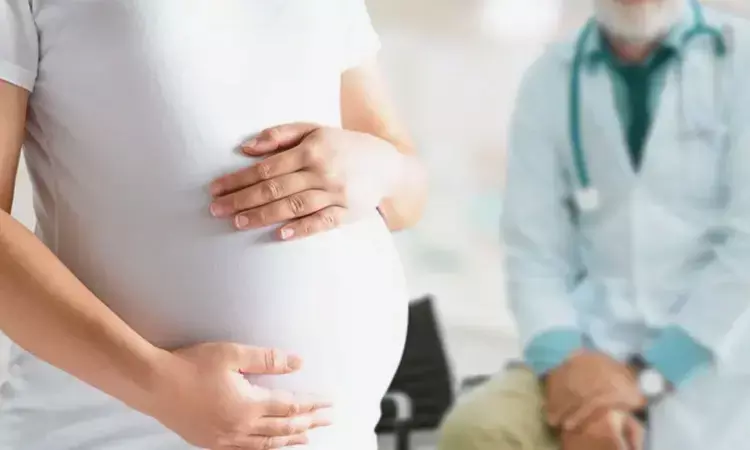- Home
- Medical news & Guidelines
- Anesthesiology
- Cardiology and CTVS
- Critical Care
- Dentistry
- Dermatology
- Diabetes and Endocrinology
- ENT
- Gastroenterology
- Medicine
- Nephrology
- Neurology
- Obstretics-Gynaecology
- Oncology
- Ophthalmology
- Orthopaedics
- Pediatrics-Neonatology
- Psychiatry
- Pulmonology
- Radiology
- Surgery
- Urology
- Laboratory Medicine
- Diet
- Nursing
- Paramedical
- Physiotherapy
- Health news
- Fact Check
- Bone Health Fact Check
- Brain Health Fact Check
- Cancer Related Fact Check
- Child Care Fact Check
- Dental and oral health fact check
- Diabetes and metabolic health fact check
- Diet and Nutrition Fact Check
- Eye and ENT Care Fact Check
- Fitness fact check
- Gut health fact check
- Heart health fact check
- Kidney health fact check
- Medical education fact check
- Men's health fact check
- Respiratory fact check
- Skin and hair care fact check
- Vaccine and Immunization fact check
- Women's health fact check
- AYUSH
- State News
- Andaman and Nicobar Islands
- Andhra Pradesh
- Arunachal Pradesh
- Assam
- Bihar
- Chandigarh
- Chattisgarh
- Dadra and Nagar Haveli
- Daman and Diu
- Delhi
- Goa
- Gujarat
- Haryana
- Himachal Pradesh
- Jammu & Kashmir
- Jharkhand
- Karnataka
- Kerala
- Ladakh
- Lakshadweep
- Madhya Pradesh
- Maharashtra
- Manipur
- Meghalaya
- Mizoram
- Nagaland
- Odisha
- Puducherry
- Punjab
- Rajasthan
- Sikkim
- Tamil Nadu
- Telangana
- Tripura
- Uttar Pradesh
- Uttrakhand
- West Bengal
- Medical Education
- Industry
WHO Issues Updated Guidelines for Managing Non-Severe Hypertension in Pregnancy

USA: Hypertensive disorders during pregnancy are a significant global health challenge, contributing to approximately 14% of all maternal deaths worldwide. These conditions not only endanger the lives of pregnant women but also pose risks to their babies, leading to long-term disability and increased healthcare costs. As part of the global effort to improve maternal health outcomes and reduce morbidity and mortality, the World Health Organization (WHO) has released updated recommendations for managing non-severe hypertension during pregnancy, focusing on the use of antihypertensive drugs.
Hypertension during pregnancy, particularly mild to moderate cases, is characterized by systolic blood pressure ranging from 140 to 159 mmHg and/or diastolic blood pressure between 90 and 109 mmHg. If left untreated, hypertension can lead to severe complications like preeclampsia, organ damage, or fetal growth restriction. To mitigate these risks, WHO's updated guidelines offer clear, evidence-based recommendations for healthcare providers managing pregnant women with non-severe hypertension.
The new WHO guidelines were developed by the Executive Guideline Steering Group (GSG) on maternal and perinatal health based on important new evidence and aimed at improving clinical practices globally. These guidelines are particularly crucial for healthcare providers involved in maternal and child health, including obstetricians, midwives, nurses, general practitioners, and policy-makers. The recommendations are designed to help reduce health disparities in maternal and perinatal health, a key component of the Sustainable Development Goals (SDGs).
A major update in the guidelines is the emphasis on treating non-severe hypertension with antihypertensive medications, particularly in the context of quality antenatal care follow-up. According to the guidelines, oral alpha-agonist drugs, such as methyldopa and beta-blockers, should be considered as effective treatment options for non-severe hypertension during pregnancy. These medications help lower blood pressure, thereby reducing the risks of complications for both the mother and the baby.
Developing these recommendations involved a rigorous process, guided by standard operating procedures of the WHO. A systematic review of existing evidence, including the Grading of Recommendations Assessment, Development, and Evaluation (GRADE) approach, was conducted to assess the benefits and potential harms of antihypertensive treatments. Experts from around the world, including obstetricians, public health professionals, and policy-makers, met to review the findings and finalize the recommendations.
The WHO also considered the feasibility, cost-effectiveness, and acceptability of the recommended treatments. The goal is to ensure that these recommendations can be applied in various healthcare settings globally, from well-resourced hospitals to rural health clinics. Healthcare providers are encouraged to carefully evaluate each case before initiating treatment, considering the patient’s specific circumstances and available resources.
Overall, the WHO's new guidelines on antihypertensive treatment for non-severe hypertension in pregnancy provide a critical framework for reducing maternal and perinatal mortality and morbidity. By promoting the use of effective antihypertensive medications such as methyldopa and beta-blockers, and ensuring that pregnant women receive proper antenatal care, the WHO hopes to improve the health outcomes of mothers and babies worldwide. The update represents a significant step towards achieving the global health targets set by the SDGs and addressing inequities in maternal and child health.
Reference:
WHO recommendations on drug treatment for non-severe hypertension in pregnancy. Geneva: World Health Organization; 2020. Licence: CC BY-NC-SA 3.0 IGO
Dr Kamal Kant Kohli-MBBS, DTCD- a chest specialist with more than 30 years of practice and a flair for writing clinical articles, Dr Kamal Kant Kohli joined Medical Dialogues as a Chief Editor of Medical News. Besides writing articles, as an editor, he proofreads and verifies all the medical content published on Medical Dialogues including those coming from journals, studies,medical conferences,guidelines etc. Email: drkohli@medicaldialogues.in. Contact no. 011-43720751


